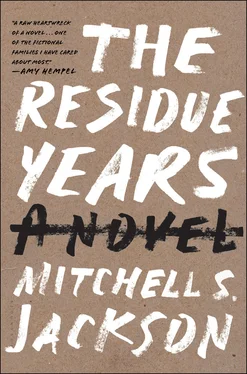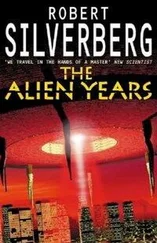Champ shows late morning playing a slow song from the sixties.
Your music, I say. You act like you as old as me with this music.
Well, you about as old as me by tastes, he says. So don’t that make us even?
We wheel out to a lot on Division and park a few blocks away because my eldest has a theory about never letting a salesman see you pull up.
There’s a circle of salesmen near an office huffing cigs. One of them stamps out his smoke and hustles over. Welcome to Treasure Auto, he says. He pats the breast of a ragged wool coat and takes out a card and thumps it and offers it to Champ. He says his name, a name you forget, and asks if my eldest and I are siblings.
So who’s leaving here in a new car? he says.
He flashes a mended smile, shakes a finger scorched from days, months, years of smoking to nubs, and this is why, while he and Champ tour, I drag feet back.
Soon as you see what you want, you let me know, he says, his breath making wreaths in the cold. And I’ll make sure you leave here with it.
You could loll a day care of upset babies to sleep with how long it takes him to show us a car that’s worth our time. This one’s gray and boxy with a lightning-shaped crack in the windshield. Champ gets in and starts it up. The engine sounds like an engine should — I’ve heard enough sick ones to know — and the inside’s nice too, as if the old owners kept it covered in plastic. Champ revs the gas and tests the heat and checks the glove and flips the visors and twists on the wipers — high speed, low speed, intermittent, and it all checks out, plus the price falls within what Champ said we had to spend. But it’s a Dodge, and I can’t get past the thought of me wheeling by every person I’ve known in life, in a car meant for someone twice my age. The salesman asks if we wanna take it for a spin.
No, thank you, I say.
Not a good fit, eh? he says. Not to worry, we’ve got a car that’s right for you or I’m in the wrong business. We let him lead us farther and farther into a used car abyss: a Rabbit with a dented bumper, an Escort with stained cloth seats, a Pontiac built before power steering. Name your price, he says, and taps a hood. No reasonable offer will be refused. Unreasonable offers may be considered.
Champ stops him midway through another pitch. Thanks, he says. But we’re going to check a few more spots. He grabs me by the arm. He’s never had a tough time making choices, or not as tough a time as me.
Hey, don’t leave, he says. Wait a sec. Wait a sec. We have more.
But my eldest has already made up his mind.
If not for me calling and calling Champ after shifts for a ride, we might not be here. It was a few shifts ago when he offered. He’d come to pick me up from a double and I was outside enjoying a smoke.
You ain’t gone stop till there’s a hole in your throat? he said.
Do we really have to start? I said.
Yes, he says. We do. So I’ve been thinking, and here’s the deal. You quit that nasty habit and I’ll buy you a ride.
You’re just talkin? I said.
When am I just talking? he said.
Give me a month, he said.
That’s it, just a month? I said.
Yes, he said. Have you made it a month before?
Guess not, I said.
Know not, he said.
They say the first one’s the toughest, he said. That it takes at least a month to form habit.
Then what? I said.
Then you’ll have a new car and a new chance at best health. So let’s start soon, he said. No, let’s start right now, he said, and stuck out his hand.
I fished out an old pack, the pack I’d just bought, the loosies I kept in the side pocket.
We stand alone in a lot for so long it feels flagrant. Champ trots off, checks sticker prices, peeks in windows, while I pop a stick of smoker’s gum and slow-chew, waiting for my craving — how will I make it a month? — to die down. There’s a stoplight a block off and bouts of traffic stop and go without anyone coming to help. When we turn to leave a man dashes out too late after us.
No such trouble at the next lot, where the salesman blurs to our side, tells us he has the perfect car, coerces us over to an electric-blue Honda. He raises the hood, shows us a small clean engine, and recites facts about pistons and horsepower and miles per gallon. He gets in and fires it up and the engine sounds like an engine. He asks if we’d like to take it for a test drive, and there isn’t a hint of desperate in his voice.
We roll off the lot with the windows down and the music high. We’re out in Southeast, but what I wouldn’t give to be in the old neighborhood, sailing early mornings past crowds at the bus stop. What I wouldn’t give to be seen zooming away from an NA meeting or pulling warm and dry up to my job.
The wheel shudders, and I let off the gas and check the mirror to see if Champ felt it too. You take care of this and it’ll run for one-fifty, two hundred thousand miles easy, the sales guy says. I take 205 north for a ways. I get off and get on the southbound side and head for the lot. We end up in the office, a mangy mobile home that smells of mildew. Our sales guy hunts the manager, and the manager — my first mind says he’s lived for years off faux-pride — sits a slab of papers on the table. Looks like today is your day, he says. Let’s talk numbers.
My credit score, these days, is slapstick. Who’d believe me about the brand-new rides I drove off lots — the Spitfire, the Mustang, the Taurus, the Datsun? Who’d believe the times they gave me low-interest loans, no-interest loans, incentives up the yang? Champ asks if I’m sure I want it. He flips through the top few sheets and slides them back to the manager and asks me to wait in the lounge. I hear him tell the manager he’s paying in cash.
When you’ve got a new car and a full tank and nowhere to be, you ride. You ride the freeway, ride local streets; you roam, hoping for witnesses, with your windows cracked and the heat blasting; you whip by the same bus stops where most days you can’t stand more than a few heartbeats without someone you know tooting their horn. Time on my hands, so I wheel by the Alberta market and the mall, ride past the parks; I cruise Ainsworth, Dekum, Lombard, dying to be seen. But there isn’t anyone out today but strangers, and I refuse to share this feeling with strangers. This is why it’s time to find Pat. My brother Pat is in one of a few places always: either at one of his kids’ mother’s house or the tavern. I stop at the house where his boys stay, and tap the horn. Someone cracks the curtains and fast shuts them closed. I toot another time and Pat’s youngest boy shuffles onto the porch in pajamas. He stops at the top of the steps and squints to see who’s in the car.
Where your mama at? I say.
Who that, Aunt Grace? he says.
Yeah, your auntie, I say.
He disappears in the house and returns with his mother clomping behind him.
Hey, girl, how you been? I say. My brother there?
Girl, this the first week of the month which means that brother of yours is MIA. Liable he’s somewhere guzzling up his half of the rent.
Well, when you see him, can you tell him I came by? I say.
As I said, Pat’s at one of a few places always. One of his favorite’s the tavern. The one tavern in all of the civilized world that sells 40-ouncers by the bottle. By car it’s a hop-skip from his woman’s place. To be true, too near for his whereabouts to be in question, but that’s my brother. I haven’t stopped in — why would I? — since forever, though forever ago this place was about what it is now. There’s a man racking pool balls, another one playing a pinball machine, old men collected around a table slapping cards. Pat’s among the cardplayers doing what he does best — running his mouth. His back is to me. He jumps when I touch him.
Читать дальше












